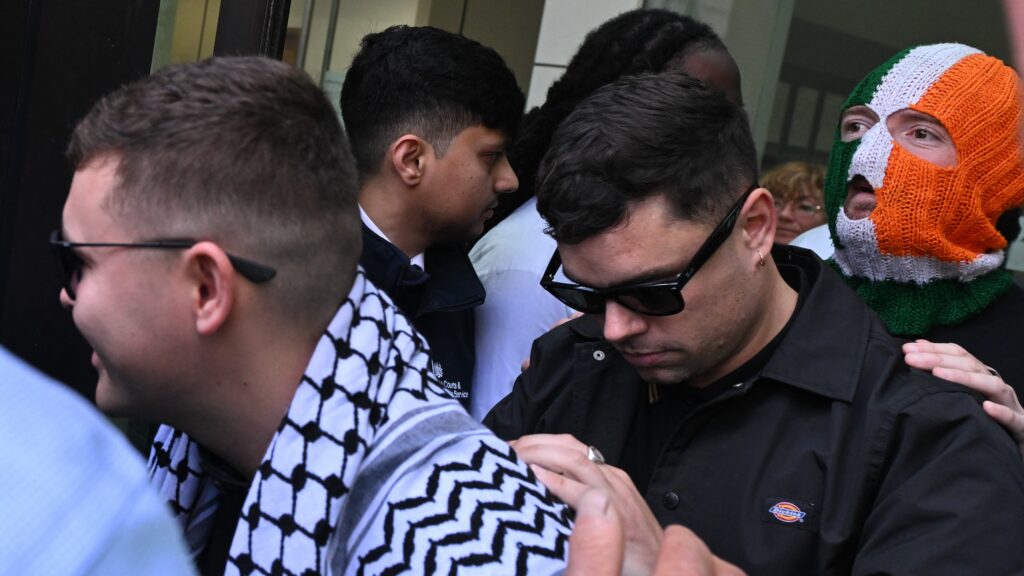Social media is once again flooded with images of crying Palestinian children standing in the midst of smoking rubble inside the Gaza Strip and #FreePalestine rallies pop up across the cities of Europe and America. It seems that we commonly decided that Israelis are the villains of this story, but I would like to argue otherwise, and from a clear conservative standpoint.
When Israel was established in 1948 in the region formerly known as British Palestine, it is safe to assume that no world leaders responsible for the decision saw what was coming. The UN resolution which gave birth to the Jewish state also meant to establish the first independent Palestinian state, dividing the land-strip West of the Jordan into two roughly equal-sized entities with similar population. It was meant to ensure that the Wilsonian principle of the right to self-determination is fulfilled for both nations: the Jews who lived there for more than two millennia before being expelled by the Romans, and the Arabs who have been living there ever since. While the argument of continuity benefits the latter group, no one can deny the unprecedented genocide the former group of people had to endure in the period prior to the partition, which was a rather strong point on behalf of the (then already half a century old) Zionist movement. However, regardless of one’s opinion about the creation of Israel, today’s conflict is an entirely different question.
Firstly, no one can really say what the two states imagined by the UN would have looked like if there was no immediate conflict after the partition, but one thing is sure: the step-by-step occupation of Palestinian lands by Israel occurred after the neighbouring Arab states started attacking Israel and not before. The four separate Arab-Israeli Wars (from 1948 through 1973) are direct causes of the gradual shrinking of Palestinian territories and their loss of statehood in 1949. Similarly, the two violent intifadas, the Palestinian uprisings of 1987 and 2000 are the reason Israel was forced to apply different laws for Palestinians and build a network of walls and checkpoints around the West Bank and Gaza, and not the other way around.
Moreover, these bloody conflicts are only one of the reasons why peace had not been reached during all these decades. The other one is the uncompromising nature of the Palestinian political elite. The Palestinian National Authority had more than enough opportunities to make peace with Israel; establish themselves as a proper state and end the bloodshed which they are so keen to showcase on social media once and for all. Recently, a US-proposed peace plan, unveiled in early 2020, offered more than ever before to the Palestinians: increasing the territory of Gaza and linking it to the West Bank via an underground tunnel, limiting the number of Israeli settlements and granting statehood to the unified Palestine (albeit with limited sovereignty first). It is highly unlikely that Palestinians get an offer like this in the foreseeable future, yet the PA rejected the plan entirely.
But first, let us examine the most common anti-Israel arguments one can encounter nowadays.
Is it true that the land allocated to Palestinians has been continuously shrinking since the partition? Yes, it is. Is it true that more Palestinians died during the conflicts of the last 70 years than Israelis? Undoubtedly. Is it true that Palestine today does not have statehood and Israeli Arabs are living under quasi-apartheid conditions? Arguably so. However, one must also look at the causes from a historical perspective and not rush to pass judgment so quickly.
But what about the “countless” civilian casualties Israeli counterattacks are leaving behind? After all, Hamas rockets killed ten Israelis (and wounded almost six hundred), while the IDF airstrikes have killed around 230 militants and civilians alike, wounding another two thousand Palestinians. Well, this is a question of effectiveness and intent. The Hamas and other terror organizations are rather poorly equipped compared to the state-of-the-art Israeli weaponry deployed against them (not to mention Israel’s famous Iron Dome Air Defence Missile System). The low number of Jewish casualties is due to Israel’s military superiority and not— by any means—to the merciful strategies of Hamas. No, their intentions are clear: to make as much destruction as they can, deliberately targeting the densest population centres, including Tel Aviv and West Jerusalem, and not the military outposts of the IDF. Proper freedom fighters, those chaps.
The Israelis, on the other hand, are different. During the past couple of days Israel has demonstrated countless times that its aim is to minimalize civilian casualties as much as the situation allows it. We might add that Hamas has never made that easy for them, as they have the heroic habit of setting up their most important headquarters in densely packed residential areas, mostly in buildings where lots of innocent families live. If they were really defending Palestinians as they claim, they would not put their lives at perpetual risk, would they? So Israel issued warnings prior to all airstrikes, urging civilians to evacuate. Imagine the damage those strikes could have caused if they did not. Yet, the IDF’s most ingenious move was deliberately leaking information about an imminent ground invasion of Gaza, which led many of the Arab militants leave their hideouts in the cities and try to slip away in their underground tunnel systems, which then were bombarded by the Israeli air force. If Israel really was the cruel, uncaring oppressor the West now fashionably think of, then it would not have needed this risky ploy in order to spare the innocents.
The way I see this now—and again, regardless of the Al-Aqsa incident, which really was a major misstep—there are two clearly distinct sides in this ongoing conflict. Hamas wants to kill the Israelis, whereas Israelis want to stay alive. It is not easy to compromise in a situation like this, is it?
Of course, I am not blaming anyone who would rather sympathize with the Palestinian side in this conflict. I myself was among them for quite some years, too. The right to self-determination—refused to Palestine for seemingly no reason—is an idea cherished by most conservatives, and hits especially home for Hungarians. Two-thirds of Hungary has been awarded to neighbouring countries following the First World War, rendering millions of Hungarians foreigners in their own homelands. Because of this I always felt closer to Palestinians, and—as born and raised in Transylvania—I could relate to their struggle for the land that was taken from their grandparents by a far-away council in New York.
Yet, this personal connection is also what made me realize the differences of the two situations. Szeklerland (in Hungarian, Székelyföld) for instance, was never offered the opportunity of a political autonomy, much less statehood as Palestinians were. Israeli Arabs had countless opportunities which could have set them on the path to freedom, yet their leaders refused to negotiate. After the rejection of the ‘Trump peace plan’, no one can can really say that Israel did not try.
Which brings us to the ongoing conflict.
The terror organization Hamas, which is in de facto control of Gaza, started an unprecedented rocket attack against several Israeli cities following the Israel Defense Forces’ (IDF) desecration of the Al-Aqsa Mosque in East Jerusalem. Yes, it was a mistake to follow the armed protesters into the mosque and to use riot control weapons inside one of the holiest sites of Islam, but the question has become irrelevant once the Hamas began the shelling. More than three thousand missiles have been fired from Gaza in only a few days and no amount of sensitive pictures on Facebook can take away Israel’s right to defend itself. When the night sky is lit up by the flares of dozens of simultaneously fired rockets, I doubt there would be any country that would act otherwise.
Yes, Israel must be held accountable for its legal treatment of Arabs, but this alone does not justify bloodshed. In a war where one side tries to kill people, and the other defends them, it is clear where we—conservatives and everyone else—must stand. Once the rockets have gone silent, we can think about the future together.







